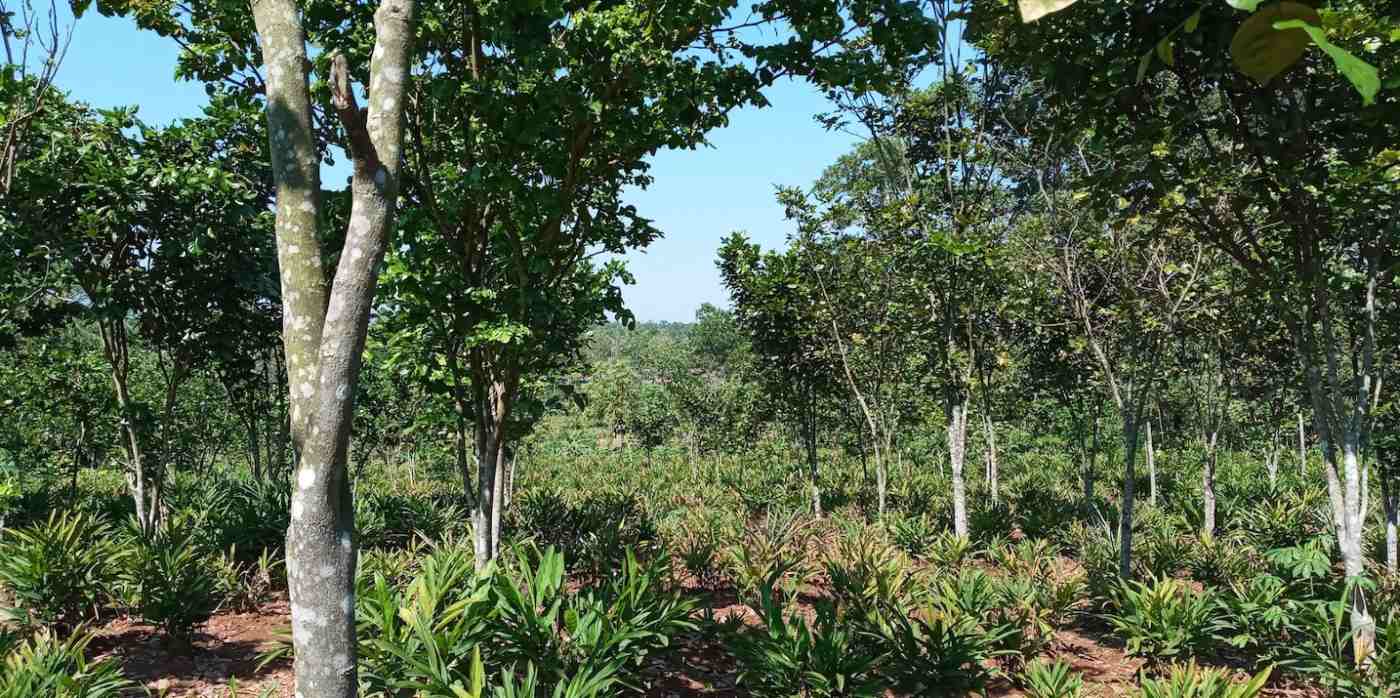
🌳 A tree with big potential
This tree could help create a biofuel revolution, power cars, feed people and restore degraded land.
Share this story!
This tree grows across much of Asia and is known as Pongamia (Pongamia pinnata). It’s a member of the pea family and one of the trees the Indonesian forestry experts are considering for possible landscape restoration and for the future of bioenergy.
The Indonesian archipelago is facing many challenges. One of them is how to restore 14 million hectares of degraded land in order to keep their promise to the UN and at the same time develop a green energy sector worth 23 percent of the total grid contributions in only 5 years.
Because the Pongamia tree grows well on degraded or marginal land and in both wet and dry areas, it has excellent potential. It can also be found from India in the west, all the way across Asia to Fiji in the Pacific.
Indonesia’s Ministry of Forestry and Environment’s Research is exploring the Pongamia for a mass tree planting because they believe the trees special oil - used for centuries for wound healing, soap making and more - can be used to power a biomass energy revolution. The tree could also offer a new crop for local communities to improve the economy.
The Pongamia is one of the fastest growing trees in the Indonesian archipelago and it can grow on different altitudes. As a nitrogen fixer, the tree can also improve the quality of the soil.
Could be used as motor fuel
Good News Network explains: “Modern extraction methods confirmed the oil’s potential as a biofuel crop, with one study finding 44 percent more oil per seed extracted than traditional methods. When combined with five percent gasoline, it can power diesel engines in vehicles without compromising performance. This is key as many of the more remote Indonesian islands are powered by diesel generators.”
Budi Leksono, one of the scientists working on the project, says that the trees could be used as a healthy food source too because the tree's seeds can be turned into nutritious flour.
“I haven’t tried it myself yet, but in the trials, everyone said it was delicious!” Leksono told Forest News.
The Central for International Forestry Research is trying to see if Pongamia plantations can be suitable for abandoned mining lands and degraded peatlands. Peatlands are one of the most carbon-rich soils on the planet and ideal for trapping CO2 from the atmosphere. Tests have been done in Central Kalimantan Province on Borneo.
“We planted the trees a year ago, and so far they are growing faster than other similar species. This suggests they may be particularly tolerant to harsh conditions, and would then be especially promising for restoration and rehabilitation of degraded land,” said Leksono.
The Pongamia is proof that sometimes we just have to look to nature in order to make the future come sooner.
Picture: FORDIA Research Forest in Parungpanjang, Bogor Regency, Indonesia/Yusuf Bahtimi via Good News Network
By becoming a premium supporter, you help in the creation and sharing of fact-based optimistic news all over the world.


